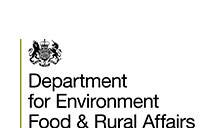Define food waste and methane emissions
In this section, we will explore the concept of food waste and its connection to methane emissions. Food waste is defined as any uneaten or discarded food that could have been consumed. It encompasses both edible food that is thrown away and food that is left to spoil or expire. Food waste occurs at various stages of the supply chain, including production, processing, distribution, and consumption.
Methane emissions, on the other hand, are greenhouse gases released during the decomposition of organic waste, such as food. When food waste ends up in landfills, it undergoes anaerobic decomposition, which produces methane. Methane is a potent greenhouse gas that is approximately 25 times more effective in trapping heat in the atmosphere than carbon dioxide over a 100-year period.
As food waste decomposes and releases methane, it contributes to climate change and global warming. The impact of methane emissions on the environment is significant, as it exacerbates the greenhouse effect, leading to rising temperatures and the melting of polar ice caps. Additionally, methane emissions from food waste indirectly contribute to other environmental issues, such as deforestation, water waste, and increased energy consumption throughout the food production and disposal processes.
Highlight the scale of the problem
Food Waste and Methane Emissions: A Global Concern
Food waste has reached alarming levels globally, leading to significant methane emissions and exacerbating the problem of climate change. It is estimated that approximately 1.3 billion tons of food is wasted every year, equivalent to about one-third of all food produced for human consumption.
This enormous amount of wasted food is not only a squandering of precious resources, but it also contributes to the release of methane, a potent greenhouse gas. Methane is generated when organic waste, such as food, decomposes under anaerobic (oxygen-deprived) conditions. In fact, methane is estimated to be 28 times more potent in trapping heat in the atmosphere compared to carbon dioxide.
The implications of food waste and its association with methane emissions extend far beyond individual actions. It is a global problem that demands immediate attention and action. The scale of the problem becomes evident when considering the environmental consequences and the urgent need for mitigation strategies.
The Urgency of Addressing Food Waste and Methane Emissions
The scale of food waste and its resulting methane emissions poses a significant threat to our planet and its ecosystems. Not only does food waste contribute to climate change, but it also indirectly impacts other environmental issues.
Deforestation, for example, is often driven by the need for more agricultural land to produce food. Additionally, the excessive water and energy consumption associated with food production and distribution, only to have a portion of it wasted, exacerbate the strain on natural resources.
Global statistics paint a dire picture of the magnitude of the problem. The Food and Agriculture Organization (FAO) estimates that food waste is responsible for about 8% of global greenhouse gas emissions. This is an alarming figure that demands urgent action to reduce the scale of food waste and its associated methane emissions.
Explore the Environmental Impact of Food Waste and Methane Emissions
Food waste and methane emissions have severe environmental consequences that contribute to climate change, deforestation, water waste, and increased energy consumption. Understanding the environmental impact of these issues is crucial for developing effective strategies to mitigate their effects.
Methane as a Potent Greenhouse Gas
Methane is a potent greenhouse gas that is released during the decomposition of organic waste, such as food. It has a much higher global warming potential compared to carbon dioxide, making it a significant contributor to climate change. It is important to tackle methane emissions from food waste as part of broader efforts to reduce greenhouse gas emissions.
Contributing to Climate Change and Global Warming
The release of methane from food waste contributes to climate change and global warming by trapping heat in the atmosphere. As the concentrations of greenhouse gases, including methane, increase, they contribute to the rise in global temperatures. This, in turn, leads to changes in weather patterns, rising sea levels, and the loss of biodiversity.
Indirect Impact on Deforestation
Food waste indirectly contributes to deforestation due to the unsustainable agricultural practices used to produce the wasted food. Large areas of land are cleared to cultivate crops and livestock feed, leading to the destruction of natural habitats and loss of biodiversity. By reducing food waste, we can lessen the demand for agricultural production, thus mitigating deforestation.
Water Waste
The production and disposal of wasted food also result in significant water waste. Water is a crucial resource for agriculture, and when it is used to cultivate food that goes uneaten, it represents a waste of finite resources. By reducing food waste, we can conserve water and ensure its sustainable use in other sectors.
Increased Energy Consumption
The food production system requires significant energy inputs, including transportation, processing, and refrigeration. When food is wasted, not only are the resources that went into producing it lost, but additional energy is also wasted. This unnecessary energy consumption contributes to greenhouse gas emissions and the depletion of natural resources. Reducing food waste can, therefore, contribute to a more sustainable and energy-efficient future.
Economic and Social Implications of Food Waste and Methane Emissions
The issue of food waste and its associated methane emissions has significant economic and social implications that cannot be ignored. By understanding the financial and ethical aspects of this problem, society can work towards finding effective solutions.
Financial Losses from Wasted Food
The economic impact of food waste is substantial, with enormous financial losses incurred at every stage of the food supply chain. From agricultural production to transportation, processing, and distribution, resources such as water, energy, and labor are wasted when food is discarded. This leads to financial losses for farmers, businesses, and consumers alike.
Listed below are some key points regarding the economic implications of food waste:
- Annually, approximately X amount of food is wasted globally, resulting in billions of dollars in economic losses.
- Restaurants and grocery stores experience financial loss due to unsold or spoiled food that is thrown away.
- Households also contribute to this economic burden by wasting food they purchase but do not consume.
Potential Economic Benefits of Reducing Food Waste
The reduction of food waste presents an opportunity for economic gain. By implementing strategies to minimize waste, financial savings can be achieved across multiple sectors. Some potential economic benefits include:
- Lower production costs for farmers, leading to increased profitability.
- Reduced expenses for businesses and households through more efficient food utilization and management.
- Creation of new jobs and business opportunities in waste reduction and recycling industries.
- Increased affordability of food for consumers, particularly in regions where food insecurity is prevalent.
Social Justice Concerns
Food waste raises important ethical considerations, particularly in the context of hunger and poverty. While food is wasted, millions of people around the world suffer from food insecurity. Highlighting the social justice aspects of food waste is crucial in order to foster a sense of responsibility and promote equitable access to food for all individuals.
Here are some key social justice concerns related to food waste:
- Wasting food while people go hungry is a moral and ethical issue that needs to be addressed.
- Reducing food waste can contribute to alleviating food insecurity and hunger by redirecting surplus food to those in need.
- Efforts should be directed towards creating a fair and sustainable food system that ensures everyone has access to an adequate and nutritious diet.
By acknowledging the economic losses and social justice concerns associated with food waste and methane emissions, we can mobilize efforts towards finding innovative solutions and implementing effective policies. The next section will explore various strategies and initiatives that have proven successful in reducing food waste and mitigating the release of methane.
Strategies for Reducing Food Waste and Methane Emissions
Food waste and the resulting methane emissions pose significant environmental and social challenges. To tackle this issue, various strategies and innovations have been implemented worldwide. Below are some examples of successful initiatives:
Improved Harvesting and Storage Techniques
- Enhanced harvesting practices minimize losses during the collection of crops, fruits, and vegetables.
- Implementing efficient storage techniques, such as controlled atmosphere storage or refrigeration, can extend the shelf life of perishable food items.
Better Food Labeling and Packaging
- Clear and accurate food labeling helps consumers understand expiration dates and storage instructions, reducing the likelihood of food being prematurely discarded.
- Innovative packaging technologies, such as vacuum-sealed or modified atmosphere packaging, can extend the freshness of food items, preventing spoilage.
Food Waste Reduction Campaigns and Policies
- Public awareness campaigns educate individuals on the importance of reducing food waste and provide practical tips for minimizing waste in their daily lives.
- Government-led policies can encourage businesses and households to adopt food waste reduction practices, such as composting or donating surplus food.
Donating Surplus Food
- Establishing partnerships between food businesses and local charities allows excess food to be redistributed to those in need, reducing waste and combating food insecurity.
- Food donation programs often collaborate with food banks, shelters, and community organizations to ensure the efficient distribution of surplus food.
Community Gardens and Composting
- Community gardens offer opportunities for individuals to grow their own food, reducing the reliance on large-scale production and minimizing waste.
- Composting organic waste, such as food scraps and yard trimmings, can divert it from landfills and create nutrient-rich soil for gardening and farming.
These initiatives demonstrate that reducing food waste and methane emissions is achievable through a combination of individual actions, policy changes, and collective efforts. By implementing these strategies on a larger scale, we can make significant progress towards a more sustainable and responsible food system.
The role of individuals and communities in tackling food waste and methane emissions
Individuals and communities play a crucial role in reducing food waste and mitigating methane emissions. By making conscious choices and adopting sustainable practices, we can make a significant contribution towards addressing this global issue.
Conscious consumer choices
One of the most impactful ways individuals can contribute is through conscious consumer choices. By adopting meal planning techniques, we can reduce the likelihood of purchasing excess food that may go to waste. Proper food storage techniques, such as utilizing airtight containers and refrigeration, can also extend the shelf life of perishable items and prevent spoilage. Making use of leftovers is another simple yet effective way to minimize food waste.
Community-based initiatives
Communities can also play a pivotal role in tackling food waste and promoting sustainable practices. Food donation programs, for instance, enable individuals and businesses to redirect surplus food to those in need, reducing both waste and food insecurity. Community gardens provide an opportunity to cultivate fresh produce locally, reducing the need for long-distance transportation and minimizing food waste. These initiatives foster a sense of collective responsibility and engagement towards sustainable food practices.
Educational campaigns
Raising awareness about the environmental and social impacts of food waste is crucial for inspiring behavioral change. Educational campaigns led by individuals, non-profit organizations, and local authorities can help disseminate information about sustainable food practices, including proper storage techniques and the importance of reducing food waste. These campaigns can also highlight the benefits of minimizing methane emissions, such as mitigating climate change and preserving natural resources.
Collaboration and knowledge sharing
It is essential for individuals and communities to collaborate and share their knowledge and experiences in tackling food waste and methane emissions. By participating in local sustainability groups, attending workshops, and engaging with online platforms, individuals can learn about innovative solutions and best practices from around the world. Sharing success stories and lessons learned can inspire others to take action in their own communities.
By implementing these strategies and promoting individual and community participation, we can create a collective impact in reducing food waste and mitigating methane emissions. Together, we can build a more sustainable and equitable future for all.
Call for Collective Action and Policy Changes
The need for collective action and policy changes is crucial to effectively address the issue of food waste and methane emissions. Collaboration between governments, organizations, and individuals is essential in implementing regulations and incentives that encourage sustainable food production and consumption.
Regulations and Incentives for Sustainable Food Practices
One key aspect of addressing food waste and methane emissions is the implementation of regulations that promote sustainable practices throughout the entire food supply chain. This includes measures to minimize food waste at each stage, from production to distribution and consumption. Governments can play a significant role in developing and enforcing these regulations.
Additionally, incentives should be provided to encourage businesses and individuals to adopt sustainable practices. These incentives can include tax breaks for companies that implement effective food waste reduction strategies, grants for research and development of innovative food preservation technologies, and subsidies for sustainable agriculture practices.
Collaboration between Stakeholders
To effectively tackle the issue, collaboration between various stakeholders is essential. Governments, non-profit organizations, businesses, and individuals need to work together towards a common goal of reducing food waste and methane emissions.
Government agencies can collaborate with food industry associations and organizations to develop guidelines and best practices for waste reduction. They can also provide funding for research and pilot projects aimed at finding innovative solutions to the problem.
Furthermore, partnerships between food retailers, producers, and consumers are crucial. By working together, these stakeholders can identify areas of improvement in the food supply chain, educate consumers about the value of reducing food waste, and implement strategies to minimize waste at every level.
Education and Awareness Campaigns
Raising awareness about the environmental and social consequences of food waste and methane emissions is essential to drive change. Governments, organizations, and individuals can contribute to this by launching education and awareness campaigns.
These campaigns can focus on educating individuals about the impacts of food waste on climate change, as well as providing practical tips on how to reduce waste at home, such as proper meal planning and storage techniques. Additionally, they can highlight the importance of sustainable consumption habits, such as purchasing only what is needed, supporting local food systems, and utilizing leftovers.
Global Cooperation and Knowledge Sharing
Tackling the issue of food waste and methane emissions requires global cooperation. Governments and organizations should actively engage in knowledge sharing, exchanging successful strategies and initiatives from different regions and countries.
International platforms, forums, and conferences can serve as avenues for sharing best practices and lessons learned. These platforms can also facilitate partnerships between countries, encouraging them to collaborate on research, technology development, and implementing effective policies.
Reducing food waste and methane emissions presents a significant opportunity to mitigate climate change and promote sustainable practices. By implementing collective action and policy changes, we can create a positive impact on the environment and work towards a more sustainable future.
Category: Nature and Environment







Leave a Reply